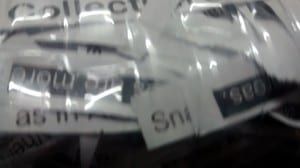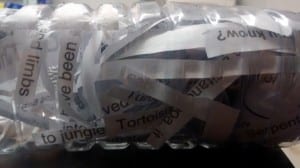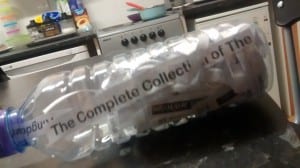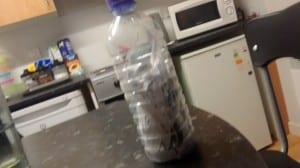On the 28th January 2015, our first real site specific seminar was based on the idea of what a library
is, what a library is ultimately doing and what in turn this means for the books in the library. Does
the incorporation of different materials presented in books change the meaning and ideology of a
library? Does it change what a library does? Does it change a library’s social context? What if the
categorisation of books was a massive contributing factor in how a person learns? Perhaps libraries
should be more social, perhaps a library should become what it entails in its book.
In this seminar, we were asked to clear our minds of all thoughts (if that’s even possible) and
subconsciously write 50 book titles. Whilst doing this task I adopted a method in which I counted
back from ten whilst controlling my breathing in order lose focus of anything around me. I had to do
this several times whilst performing the task in order to keep my desired mind state.
50 Potential Books: (yeah, right?)
1. 72 Virgins & Counting
2. The Complete Collection Of The History Of The Lizard Kingdom
3. What If We’re Not Alone?
4. Conspiracies theories about 911
5. Charles Manson: Our Lord & Saviour
6. This is becoming apparently futile
7. Life as we know could come to an end
8. The only thing you’ll ever need to read
9. 9/11 was a hoax
10. Stephen Fry is a Lizard
11. Bring me that horizon and other things Jack Sparrow said that no one really understands
12. OK, time for plan B
13. Wake & Bake
14. The Cruel intentions of David Cameron
15. Dragons and China
16. The Terrorist’s will win
17. North Korea: the Script for the musical
18. The Theories behind the conspiracies
19. Nuclear relationships: A blast of a time
20. Wibbly Wobbly Wongle Dong
21. The A-Z of Lizards
22. The encyclopaedia of the troubled north
23. Suicide Season is over
24. Bass is best
25. Come toward the light and live in fear forever
26. The Evil Living
27. Cut off from all
28. How to assassinate a president/prime minister or other worldly leader
29. Deicide
30. The Yoghurt Thieves
31. The universe isn’t expanding
32. I think you’re the fucking antichrist
33. Why are you wearing that stupid man suit
34. Farage is a dictator
35. Why being political is boring
Billy Cummock 1338304226th January 2015
36. What if we’re all to blame?
37. Or Maybe not
38. Grandma Death
39. Scream
40. How to have common courtesy
41. An open letter to no one
42. Watkins should hang
43. How to kill a vampire-werewolf hybrid
44. How to set a fire
45. How to not get caught
46. How to not plead guilty
47. Solar Plexus
48. Smoke
49. Cooking with fire
50. Breaking the 3rd wall
Okay, so maybe some of them are a little unorthodox. Next we were asked to come up with a few
categories in order to section these books off from each other. So here they are:
Potential Sections:
1. Conspiracy theories
2. How to:
3. Miscellaneous Items
4. Why we all hate politics
5. Statements
So maybe I’m a little disturbed but whatever, not like I’m actually going to publish one of these
books. Oh Wait…
Billy Cummock






